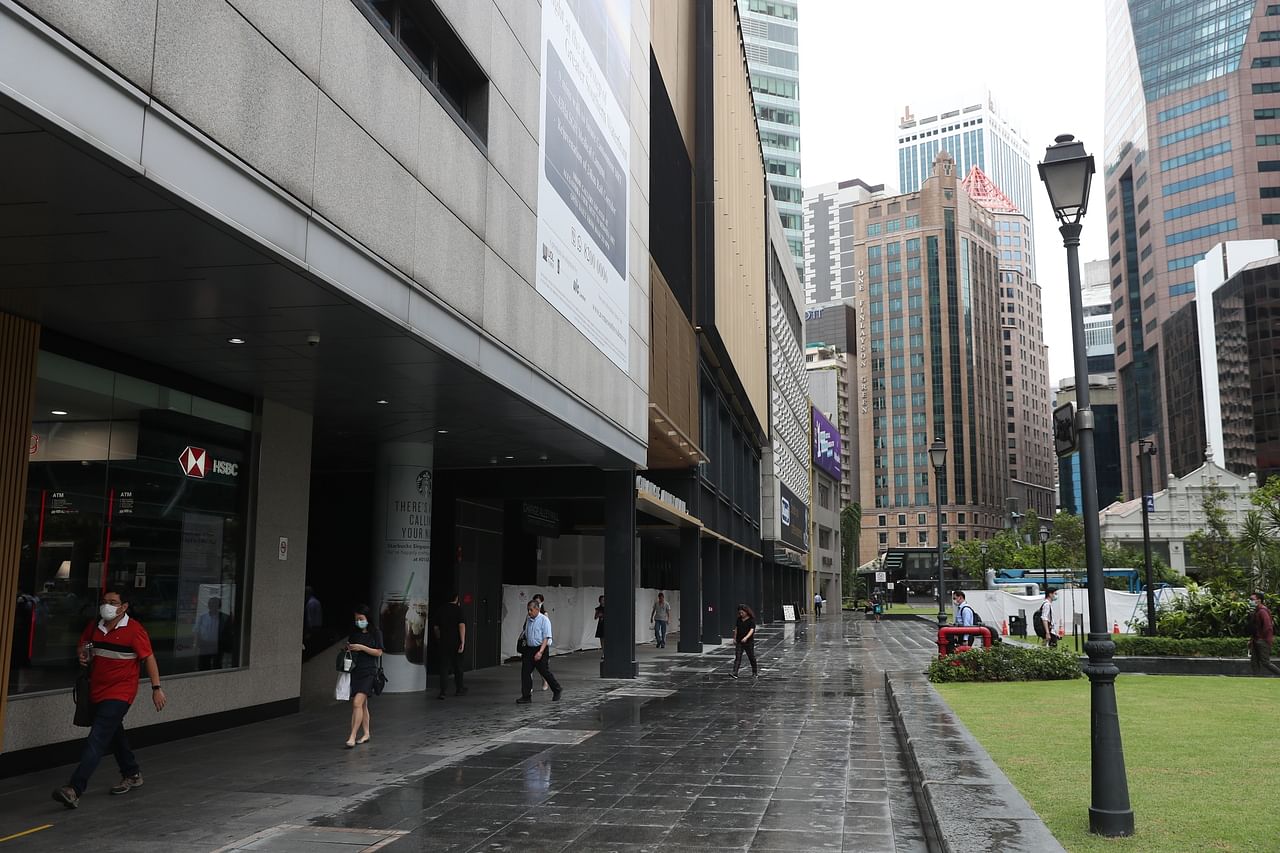Coronavirus pandemic: Parliament
Proposed law does not alter sanctity of contracts: Minister
Sign up now: Get ST's newsletters delivered to your inbox

The proposed law provides temporary protection for those unable to fulfil their contractual obligations due to the Covid-19 outbreak.
ST PHOTO: TIMOTHY DAVID
The proposed law to provide temporary protection for those unable to fulfil their contractual obligations due to the Covid-19 outbreak does not change the fundamental sanctity of contracts made in Singapore, Law Minister K. Shanmugam told Parliament yesterday.
He stressed that the Government's intervention to change the obligations for contracts made is targeted and temporary, meant to provide relief without too much alteration to contractual rights.
"I would call this a legal circuit breaker - a timeout - until this virus dies out, and contracts, like life, can return to normal," he said.
In his speech on the Covid-19 (Temporary Measures) Bill, Mr Shanmugam said the Government did not make such a move lightly, and he took pains to lay out the principles that were taken into consideration for this Bill and which would guide any such intervention in the future.
Alongside rational government policy and the absence of corruption, the sanctity of contracts forms the bedrock for Singapore's success as an international commercial centre, said Mr Shanmugam.
"They are all threaded together to form one larger Golden Thread," he said. "You interfere with any of this, you risk unravelling the entire Golden Thread."
He described the sanctity of contracts as an "unyielding principle and norm", although he said freedom of contracts is not absolute.
He noted that the Government already sets a legal framework that invalidates any contract that breaches those rules.
And for the current legislation, when the Government needs to intervene in contracts already formed, it does so only under a specific set of principles, including situations when the strict enforcement of particular contractual rights could damage the whole economy.
"In this situation, we cannot say leave it to the market, leave it to the contractual situation," he said.
"It would be neither fair nor just - the bottom of the market has literally fallen off, and the normal assumptions of business are gone."
The Covid-19 (Temporary Measures) Bill, among other things, seeks to prevent landlords from terminating commercial leases due to non-payment of rent if this is due to the virus, and protects consumers from having their deposits for a wedding or business event forfeited because of postponement.
He gave various examples of how even the United States, often seen as "the ultimate capitalist, free market economy", has also passed similar laws.
During the Great Depression, Iowa and 27 other states passed laws that gave relief to mortgages, and a moratorium on mortgage foreclosures.
While the laws were challenged in court, they were ultimately upheld by the US Supreme Court, which argued that the state has the power to intervene so as to safeguard the economic structure upon which all Americans ultimately depend.
During the global financial crisis in 2008 and 2009, the US again passed laws to protect home owners and renters facing foreclosure, he noted.
There is also precedent for this in Singapore law, noted Mr Shanmugam, as the Republic passed the Frustrated Contracts Act in 1959.
This law allows for a contract to be deemed "frustrated" if the failure to perform its obligations was the result of events beyond the control of the contracting parties and which could not have been reasonably foreseen.
Ultimately, Mr Shanmugam said, to not intervene during the pandemic is to be like William Shakepeare's Shylock, "insisting on extracting the last pound of flesh, but at the expense of life and spirit of this country".
"If we don't intervene, the consequences would be that those in a position of advantage will make some money, but most will suffer bankruptcies, insolvencies, and the complete destruction of the economic arena," he said.
In an indication of the urgency of the new measures, the Covid-19 (Temporary Measures) Bill, along with the revised Supplementary Supply (FY 2020) Bill, were yesterday introduced and passed on the same day - a rare move requiring a certificate of urgency from the President.
Ordinarily, a Bill takes at least a month to get passed by Parliament. It is introduced at one sitting and debated during the second and third readings at a subsequent sitting.
Explaining the need to move quickly while submitting the certificate of urgency, Second Minister for Finance Indranee Rajah said: "All of us will be affected by the necessary heightened safe distancing measures, some more than others.
"The enhanced support measures hence need to reach our workers, enterprises and households as fast as possible. In order to read the Bill three times in a single Parliamentary sitting, I have sought and obtained the President's certification that the urgency exists for this Bill."


